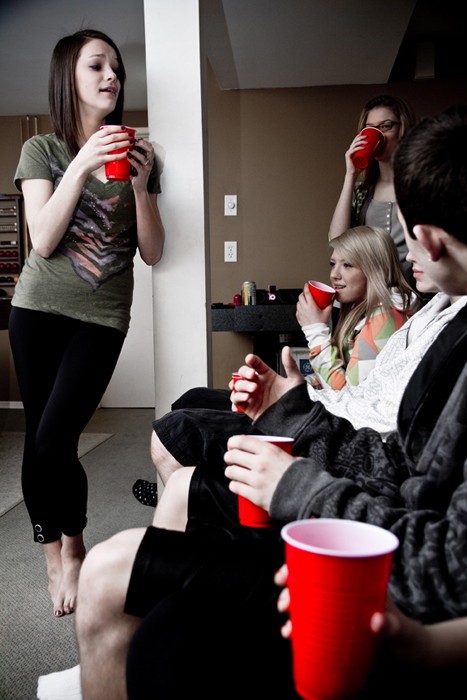Province serving up stiff penalties
Underage drinkers and those who supply booze to face tougher fines
The Manitoba government is looking to implement the country’s toughest fines against underage drinking and those who facilitate it in an attempt to curb teenagers from developing alcohol dependencies.
The province has asked the Manitoba Liquor Control Commission (MLCC) to survey other jurisdictions across Canada so they can be certain they have the highest fines for those caught drinking under the age of 18 and for those who have provided the alcohol to them, according to the minister charged with the administration of the Liquor Control Act, Gord Mackintosh.
“If you start drinking before age 15, you are four times more likely to develop an alcohol dependence later in life. Given the ongoing prevalence, we have to counter this at a younger age,” Mackintosh said.
In reaction to the 2009 Youth Health Survey completed by Partners in Planning for Healthy Living, a three-pronged approach will be implemented: the hike in fines from the current $292 per offense, a community summit to be held in September and increased visibility of the “Be the Influence” awareness campaign.
The annual report surveying Manitoba students in Grades 9 through 12 about their physical activity, eating, smoking, alcohol and drug use and overall wellness levels revealed that approximately 34 per cent of these students had more than five drinks within a two-hour span in the past 30 days.
The general effectiveness of higher fines for criminal offenses has been called into question by legal research over the past 50 years, said Debra Parkes, associate professor in the University of Manitoba’s faculty of law.
“Generally, the literature has shown that increasing severity of penalties has not been an effective way to deter crime,” she said. “It has found that it doesn’t influence people in their decisions to commit crimes. For youth in particular, it has not been found to be effective.”
Mackintosh acknowledges that fines aren’t the sole solution to the problem.
“We could move with fines rather quickly, but it’s only one piece of what needs to be a more comprehensive strategy,” he said.
Lynette Koop, program co-ordinator of Marymound, agrees. Marymound, a private non-profit agency that provides education and therapy to young people, has a youth addictions stabilization unit that works with children between the ages of 12 and 17 to complete detox and stabilization before entering a recovery program. Multifaceted approaches are used to help teens realize the effects of drinking and drugs, according to Koop.
“Our approach is education. That’s a huge piece,” she said. “The other piece is to look at the life areas that it does affect. [Looking at drinking] not only from health point of view but the day-to-day direct relations that they might not see at first.”
Koop, who has worked with teenagers for over 25 years, said penalizing those who buy and give teens alcohol has the potential to reduce underage drinking.
“Kids will always get creative in finding ways [of getting alcohol], but when you can make it more difficult and crackdown on getting access to something, clearly it will impact it,” she said.
Mackintosh and his staff will consider different monetary fines for teenagers and those facilitating drinking when they have all the cross-country research. He expects to have the new fines in place by the 2010 May long weekend.
Published in Volume 64, Number 23 of The Uniter (March 18, 2010)








